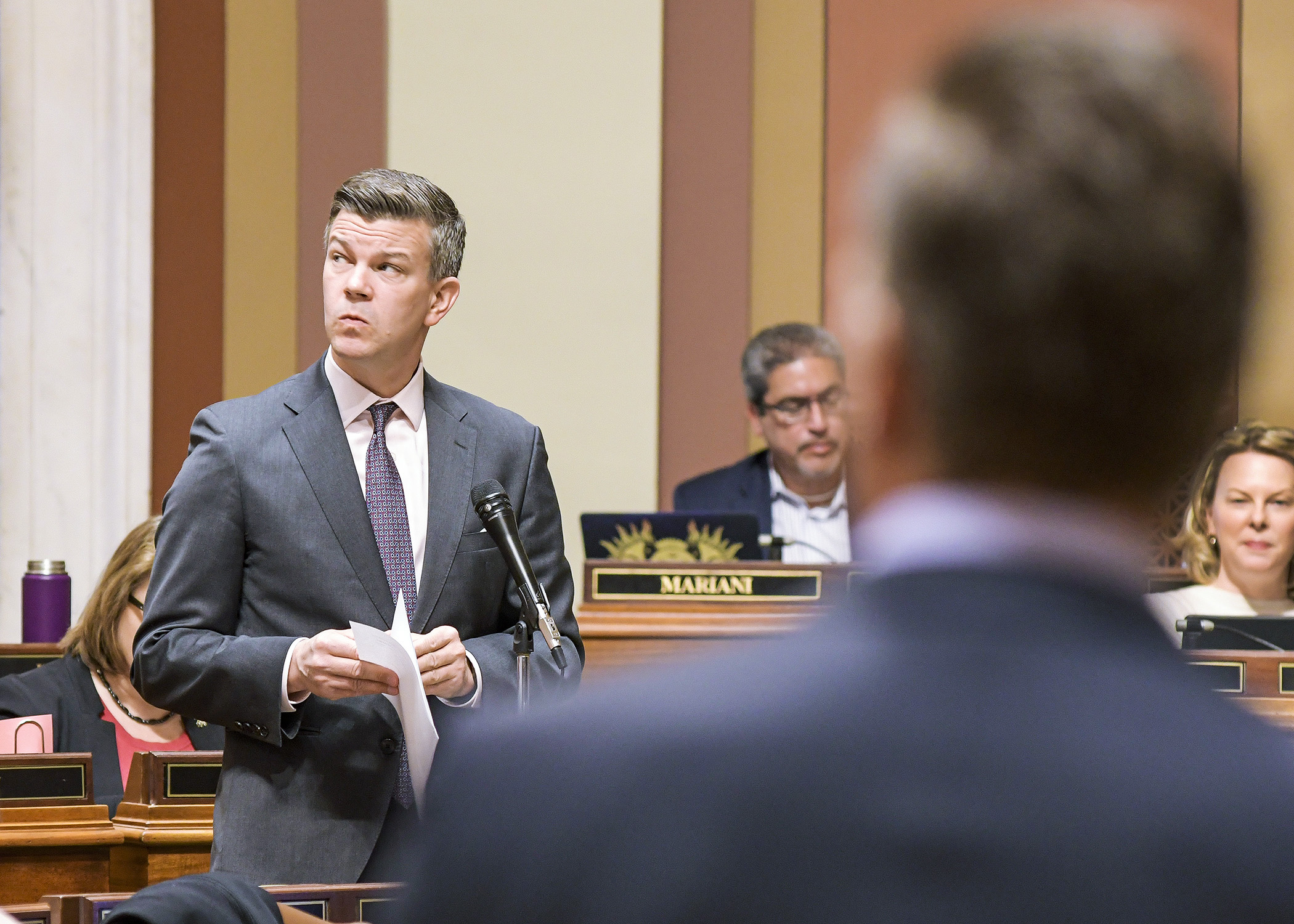With clock ticking down and no budget deal, a special session starts to look more likely

More talks, but no agreement.
That’s been the story much of this week and has continued Friday as Gov. Tim Walz and legislative leaders work behind closed doors to reach agreement on budget numbers for the 2020-21 biennium.
Senate Majority Leader Paul Gazelka (R-Nisswa) emerged from talks about 4:15 p.m. to say a deal could be close, and that he remained optimistic session could end on time. As of 8 p.m. no deal had been announced.
Per the state constitution, the Legislature must wrap up its work by May 20 this year; however, as that time gets closer, it appears a special session could be needed.
House Majority Leader Ryan Winkler (DFL-Golden Valley) told Minnesota Public Radio earlier in the afternoon that overtime is likely.
“I think in order to process bills in an orderly fashion and make sure they are not filled with mistakes, it’s going to take some extra time,” he said.
Only the governor can call a special session, but cannot decide when it ends. In recent years, a pre-special session agreement has been reached as to topics to be discussed.
This would mark the fourth time in five biennia a special session would be needed to approve a state budget. The lone exception was 2013 when the DFL controlled the House and Senate and former Gov. Mark Dayton led the state.
A few conference committees met Friday morning or afternoon, but without targets none are able to make significant progress. Many more conference committees are scheduled at the call of the chair or for Saturday. See the schedule.
If no agreement is reached by June 30, state government could begin shutting down. Fiscal Year 2020 begins July 1.
Heading into negotiations, differences were vast in both spending and policy. For example, Walz and the DFL have sought tax increases to fulfill their spending desires while Republicans believe the state’s funding needs can be met without additional revenue.
Related Articles
Search Session Daily
Advanced Search OptionsPriority Dailies
Ways and Means Committee OKs proposed $512 million supplemental budget on party-line vote
By Mike Cook Meeting more needs or fiscal irresponsibility is one way to sum up the differences among the two parties on a supplemental spending package a year after a $72 billion state budg...
Meeting more needs or fiscal irresponsibility is one way to sum up the differences among the two parties on a supplemental spending package a year after a $72 billion state budg...
Minnesota’s projected budget surplus balloons to $3.7 billion, but fiscal pressure still looms
By Rob Hubbard Just as Minnesota has experienced a warmer winter than usual, so has the state’s budget outlook warmed over the past few months.
On Thursday, Minnesota Management and Budget...
Just as Minnesota has experienced a warmer winter than usual, so has the state’s budget outlook warmed over the past few months.
On Thursday, Minnesota Management and Budget...